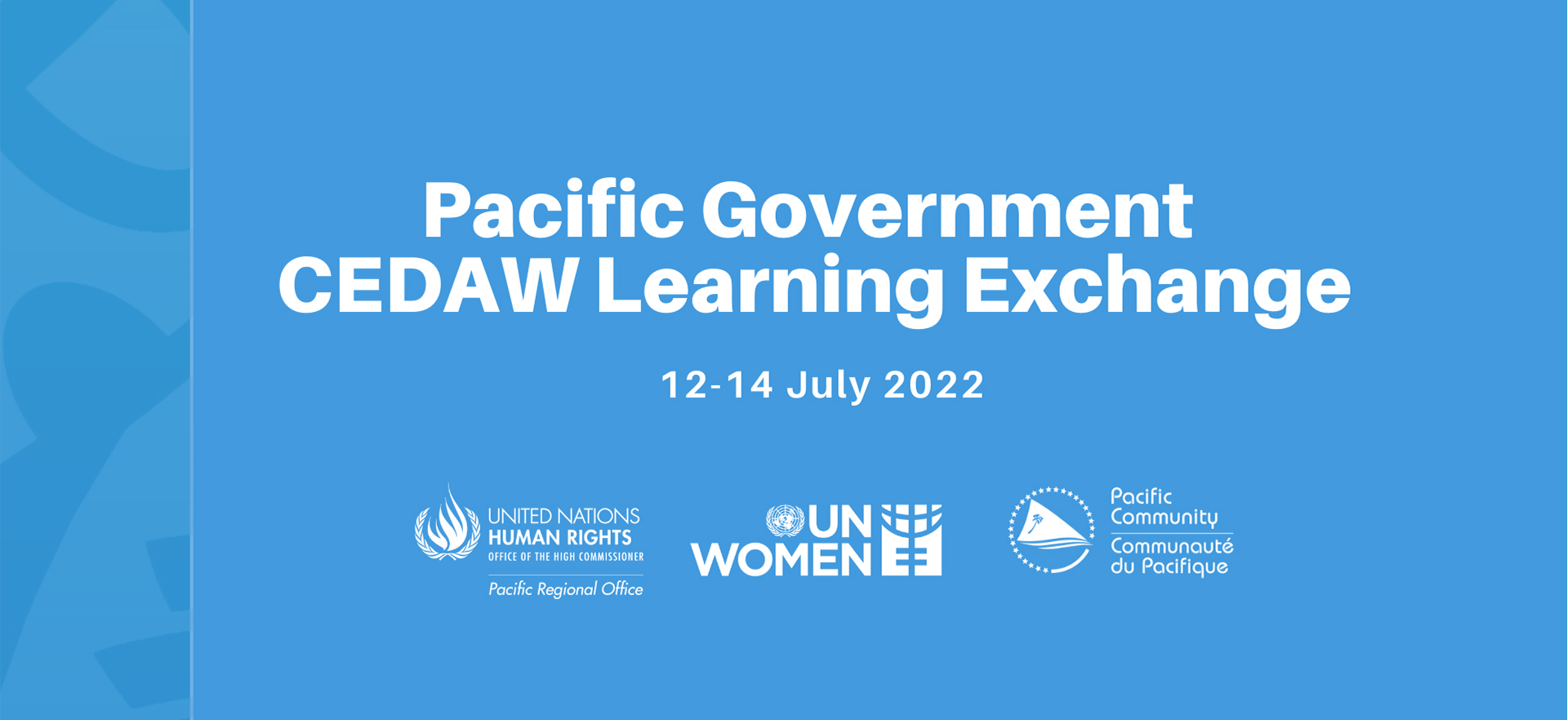
Two leading global experts on the Convention on the Elimination of Discrimination against Women (CEDAW) are in the region for the first time to work with 10 Pacific Island Governments in a CEDAW Learning Exchange. The Learning Exchange will assist government delegates to better report on, and meet, their agreed commitment to improve equal opportunities for women and men.
2 CEDAW Committee Members:
- Bandana Rana who has three decades of experience in promoting women’s rights and gender equality at the grassroots, national, regional and global level.
- Natasha Stott Despoja who is the first Australian to serve on the CEDAW committee is a former Senator and Australia’s Ambassador for Women and Girls (2013 – 2016).
The Pacific Governments CEDAW Learning Exchange is supported by the Pacific Community (SPC), UN Human Rights Office (OHCHR) and UN Women Fiji Multi Country Office (UN Women).
SPC’s support includes the Promoting Just, Engaged, Civic-minded and Transparent (PROJECT) Governance partnership between SPC and the United States Agency for International Development (USAID), and the Pacific Women Lead programme funded by Australia.
The CEDAW Learning Exchange runs from Tuesday 12 July – Thursday 14 July, 2022, with “learning hubs” in each Pacific country connecting to the facilitators in Fiji.
Background
What is CEDAW?
The Convention on the Elimination of All Forms of Discrimination Against Women (CEDAW) is often referred to as the 'women's bill of rights'. It is one of the core international human rights treaties of the United Nations treaty system, which requires Member States to undertake legal obligations to respect, protect and fulfill human rights.
CEDAW has been ratified by nearly all countries (189 of197 countries), provides valuable guidance to achieve gender equality. The Convention looks at all areas of life, ranging from family and education to economic and political life
Pacific Context
In the Pacific, 13 out of 14 Pacific Island Nations have ratified CEDAW. This includes Fiji (1995), Papua New Guinea (1995), Solomon Islands (2002), The Republic of Marshall Islands (2006), Kiribati (2004), Samoa (1992), Tuvalu (1999), Vanuatu (1995), Federated States of Micronesia (2004), Nauru (2011), Tokelau (1985 via New Zealand Government), Niue (1985 via New Zealand Government), and Cook Islands (2006).
CEDAW has been embedded into key Pacific Regional Policy frameworks. This includes strengthened commitment under the 2012 Pacific Leaders’ Gender Equality Declaration1 and Pacific Platform for Action (2018-2030)2.
Why is CEDAW important?
CEDAW legally binds all States Parties to fulfill, protect and respect women’s human rights – this means that States are responsible not just for their own actions, but also for eliminating discrimination that is being perpetrated by private individuals and organizations. Gender inequalities must be addressed at all levels and in all spheres, including the family, community, market and state.
By knowing and using the Convention, governments have a powerful tool to enhance their law-making and oversight work in the area of gender equality.
-----------------------------------------------------------------------------------------------
1. Pacific Islands Forum. (2012). PACIFIC LEADERS GENDER EQUALITY DECLARATION 30 August 2012, Rarotonga, Cook Islands. Retrieved from https://www.forumsec.org/2012/08/30/pacific-leaders-gender-equality-declaration/
2. The Pacific Community. (2017). Pacific Platform for Action on Gender Equality and Women's Human Rights (2018-2030). Retrieved from https://www.spc.int/sites/default/files/wordpresscontent/wp-content/uploads/2017/09/PPA-2018-Part-I-EN2.pdf



